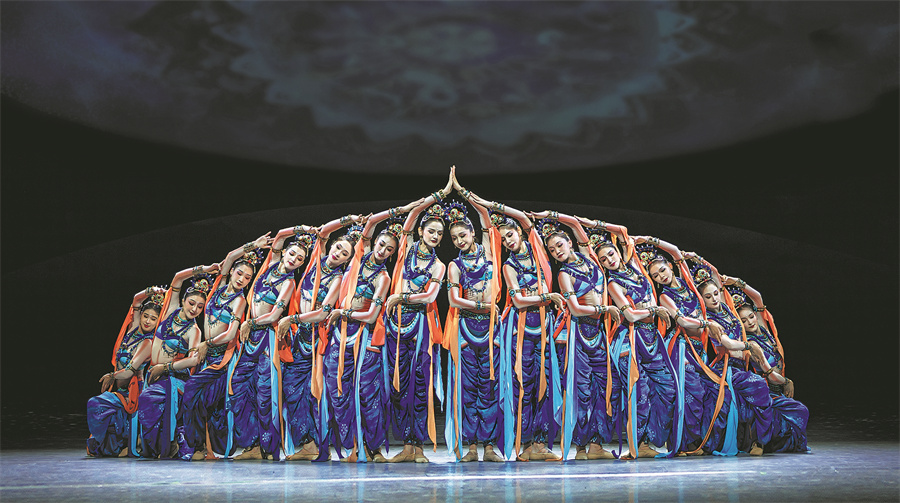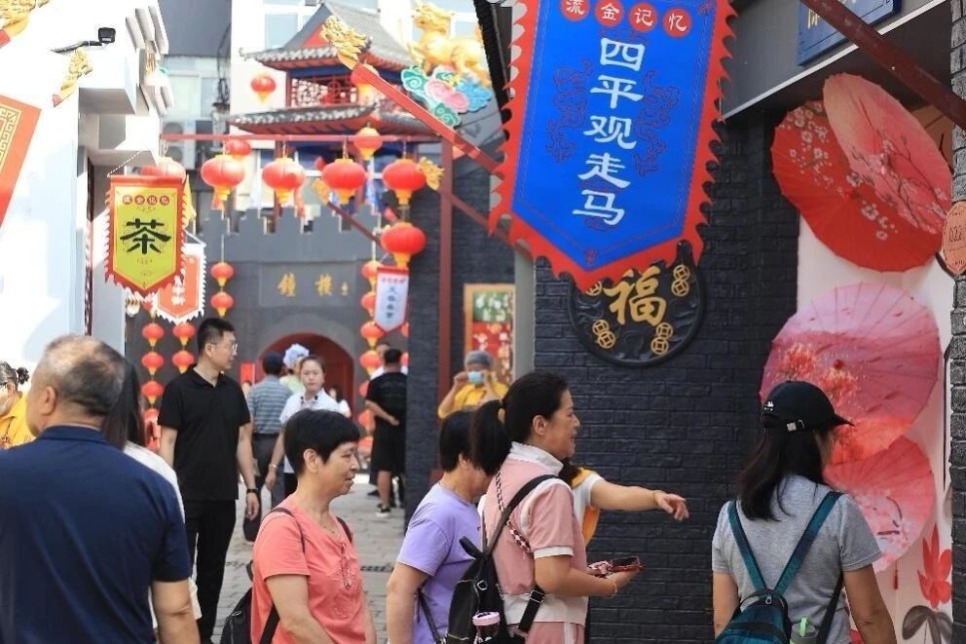A Buddhist scholar in motion


New dance production, premiering in November, presents the story of one of China's greatest continuing influencers in the translation of scriptures from Sanskrit to Chinese, Zhang Kun reports.
A new dance production, presenting the life story of the legendary Buddhist scholar Kumarajiva (343-413), one of the greatest Sanskrit-to-Chinese translators of Buddhist scriptures, will soon take to the stage in Shanghai.
A highlight of the upcoming China Shanghai International Arts Festival, Qiuci will hold its world premiere from Nov 7 to 9 at the Shanghai Culture Square.
Qiuci, or Kucha, located in the west of today's Kucha county in the Xinjiang Uygur autonomous region, was a Silk Road kingdom that merged the Eastern and Western cultures.
Kumarajiva, one of the most important figures who introduced Buddhism to China, was born there. His father was an Indian monk, and his mother was a member of the Qiuci royal family.
He was raised in the tradition of Hinayana Buddhism and later devoted himself to studying the Mahayana tradition — both schools of Buddhism that varied in interpretation and undertaking — and gained fame as a Buddhist scholar.
The 4th century was marked by political chaos in China. The Northern part became fragmented into warring states, where rulers fought over land, and scholars like Kumarajiva became pawns in their conflicts. Kumarajiva was finally freed and sent east to Chang'an, today's Xi'an, Shaanxi province, in 401.
























